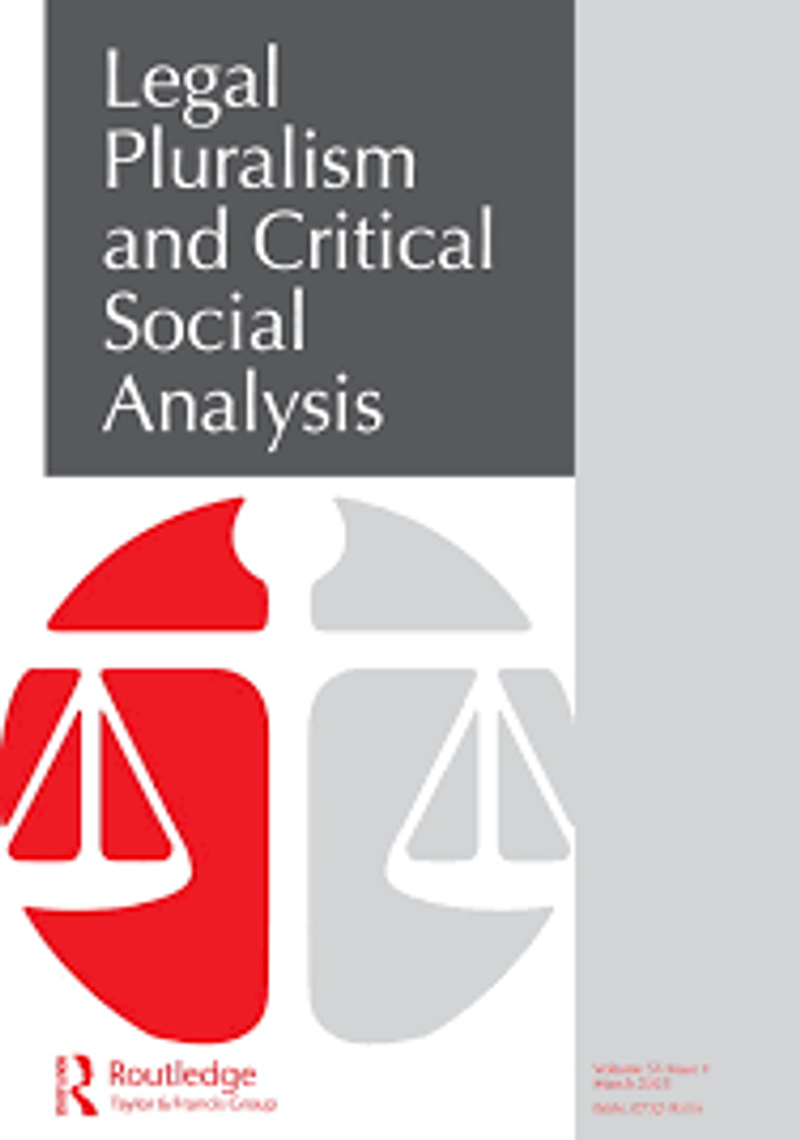Call for contributions: Resource struggles in the peri-urban: a legal pluralism perspective

Call for contributions to a special issue in Legal Pluralism and Critical Social Analysis
The world is rapidly urbanizing. Currently around 55% of the world’s population lives in urban areas, and urbanization is continuing at a high pace. Urbanization deeply transforms surrounding (previously) rural areas and their populations in several ways. The spatial expansion basic to the process, often accompanied by land speculation, rising land prices and various forms of dispossession, radically changes pre-existing livelihoods, agricultural practices and forms of social organization. A growing urban need for water may lead to forms of appropriation of surface and groundwater far beyond urban administrative boundaries. Farmer-managed irrigation systems may suffer a gradual infrastructural and institutional breakdown. “Commons” such as wetlands important for fisheries and the ecosystem may be drained, polluted by industrial waste dumping, disappear and become privatized.
There are good reasons to research and analyse processes of urbanization from a legal pluralism perspective, and to focus such research on the dynamic character of the peri-urban. The term “periurban” refers to “the coming together and intermixing of the urban and the rural, implying the potential for the emergence of wholly new forms of social, economic, and environmental interaction that are no longer accommodated by these received categories” (Leaf 2011: 528; see Narain and Roth 2022). Because of its dynamism, the peri-urban escapes all attempts at spatial fixation. If it can be defined in spatial terms at all, then primarily as a site of growing administrative, institutional and normative complexity. It is here that pre-existing, locally embedded socio-political institutions, normative orders and property arrangements pertaining to land, water and other parts of nature interact, often problematically, with newly created administrative arrangements, authorities and normative orders that come with expanding cities, urban growth regions, and related administrative re-arrangements.
In this proposal for a Special Issue Resource struggles in the peri-urban: the role of legal pluralism, we intend to focus on precisely these dynamic “peri-urban” spaces and the processes of “becoming urban” (Leaf 2011) that are transforming them. Attention to the role of legal pluralism enriches and deepens the scientific analysis of the interactions between such multiple forms of ordering and their authorizing institutions, the potential contradictions, frictions and conflicts between them and, last but not least, peoples’ (societies’; communities’) options and strategies to navigate them in ways that seem to best serve their interests. Engagement with the role of law and legal pluralism, however, does not exclude the more murky dimensions of resource access and control, such as land speculation, corruption, forms of dispossession, including the exertion of power and violence.
We aim for contributions that are strongly based in empirical peri-urban research wordwide, inspired theoretically by (combinations of) social or legal anthropology, political ecology, critical development studies, studies of (land and water; nature) commons, provided they clearly engage with issues of multiple normative ordering in theorization, field data and analysis.
Please send proposals for a contribution (abstract, extended abstract, or draft paper) before October 1st, 2024 to Vishal Narain, (vishalnarain@mdi.ac.in), Associate Editor and Dik Roth (dik.roth@wur.nl), Editor-in-Chief of Legal Pluralism and Critical Social Analysis.
